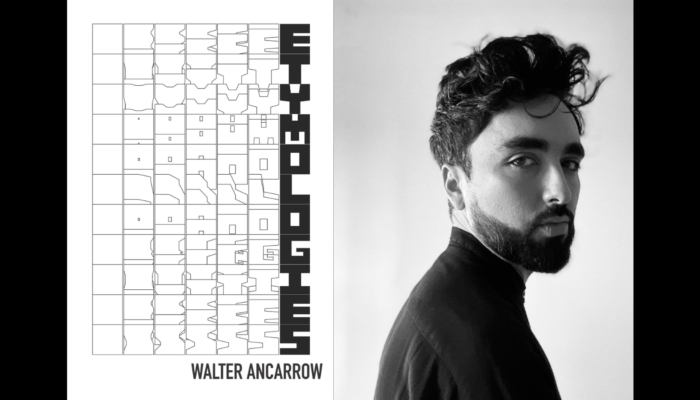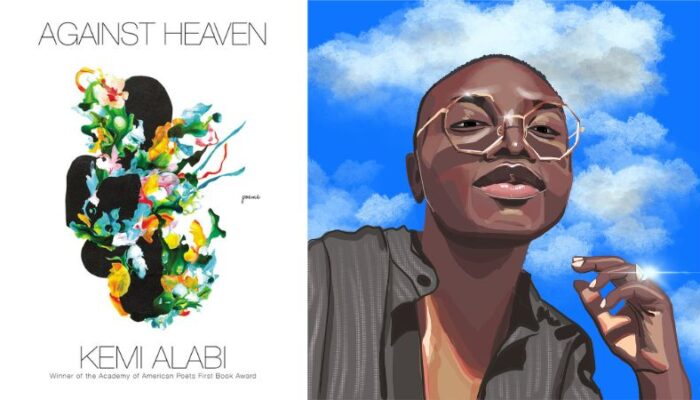Joe Loya, former bank robber and author of the memoir The Man Who Outgrew His Prison Cell, is my friend and colleague. Recently, Joe and I had a lengthy discussion about Etan Cohen’s film, Get Hard. Joe and I have long-standing involvements with the US prison system, albeit very different ones—he as an inmate in various federal prisons and I as an instructor for a college program run out of San Quentin State Prison. Our very different experiences with incarcerated men led us to a dialogue about Will Ferrell and Kevin Hart’s new film, in which Hart’s savvy character acts as a foil for Ferrell’s clueless, over-privileged one. The plot centers on Ferrell’s employment of Hart, who is hired to teach Ferrell how to “get hard” in prep for a 10-year stint at San Quentin. Our conversation about Get Hard addresses hypermasculinity, race, humor, satire, and political correctness as these concepts relate to the ways men deal with power, language, self-expression, and incarceration.
Joe Loya [JL]: So, let’s get this out there—did you like the movie?
Allie Wollner [AW]: I love Will Ferrell. And having spent some time in prison learning certain prison politics, I found some parts of the movie pretty funny. So, yeah, I did. You?
JL: My sole criterion for liking a movie is did it entertain me. That’s all I care about. In that regard, it totally worked. I laughed my ass off. Not only that, I was in a theater predominantly populated by African American people. They were laughing their asses off with me. We were snot laughing.
AW: Why do you think that audience was laughing so hard?
JL: I feel like James King, Will Ferrell’s character, gives African American people a chance at some cathartic get back. He’s so lacking in self-awareness about his race and being a racist. When Darnell, Kevin Hart’s character—who owns and operates a car wash/valet service out of a high rise garage—comes up to the James’ car window and knocks, James—the mega rich, high powered day trader inside—freaks out. We even find out James reported Darnell a couple of times for driving the car and not clocking the mileage, without realizing the man he’d reported had been Darnell. James was mindless about that. Then, an African American gang called the Crenshaw Kings, a group that’s very savvy about racism, is about to induct James into the gang and gives him the nickname “Mayo.” The fact that they turn James into the gang’s mascot is very, very entertaining to a population that recognizes too few people with the kind of racial and economic power James has get brought down to size. They like Kevin’s character because he’s not a criminal or a thug, but he does have access to that world. I think people could see themselves in that.
AW: So the audience you saw Get Hard with was laughing, really hard, but the movie’s getting so much flack. Film and cultural critics are angry. I’ve been thinking, why, with this film specifically, can’t people take the joke?
JL: It was Flannery O’Connor who said, “maximum amount of seriousness admits maximum amount of comedy.” Most people who are racial minorities have a good fucking sense of humor about race. I do, being Mexican. Racism is serious, but I can laugh at things that lambast our clumsiness around such issues—clumsiness that arises no matter which racial group we belong to, be it empowered or disempowered. Critics and academics blast a movie, but then everyone in my family sees and loves the movie.
AW: I was thinking about how satire works. Satire is supposed to highlight vices and follies and shortcomings and put them up to ridicule, to shame individuals or society into improvement. Satire uses parody and exaggeration and juxtaposition and double entendre—just as Get Hard does; Get Hard uses all those things. I think people can’t laugh because of victim anxiety. Like, if I laugh at this then I’m complicit. I can’t laugh at a joke that hinges on racism; I can’t laugh at a joke that hinges on homophobia. And I think this anxiety gets particularly strong when you don’t belong to either of those groups yourself.
JL: Listen, I’m a victim all day long of a bunch of things. As a prisoner and a brown man, I was a victim of “The System” or whatever. But I fucking love Will Ferrell’s efforts to dial up the buffoonery in maleness. Because that’s how I see hypermasculinty—as buffonery. That’s what Get Hard speaks to me about—dialing up the doofus quotient and mocking hypermasculinity.
AW: I agree. I also saw the movie as commentary on how close hypermasculinity gets to homosexuality. When James is in the bathroom of the gay bar trying to give a blow job, a man comes up to Darnell and starts hitting on him. Darnell says, “No, no, no. You’re like a 6 and I’m like a 10…so this would never happen. If I were going to get in this game, I would be the best.” To me, those lines translate to “I’m not gay, but if I were actually going to do this, I’d fucking kill it.” And that feels like hypermasculinity.
JL: That’s exactly it. The aggression, the attention to sexual metaphoring, all that shit in hypermaleness is so close to homosexuality; it’s a circle, not a spectrum. The outrageous nature of hypermasculinity is a reason for all the over the top humor in Get Hard. Everything about hypermaleness is hyper performance—think of Pagliacci, think of the make up in Kabuki theater. That’s what exaggerated hypermasculinity looks like. So in order to mock that, the humor has to rise to that level.
AW: A huge part of Get Hard’s humor was devoted to the ass—being dominated or dominating other men using the ass and disgust over putting things up one’s ass. The ass seems to be a site of anxiety for men.
JL: You know, when I got out of prison, the number one thing free men asked me about was prison rape. Guys told me they weren’t going to fuck up because they were afraid of prison rape. And in the nine years I was inside county jails and prisons, there were brutal rapes around me. They were about total dominion, about breaking somebody. But, in my experience, joking about the ass was constantly in play precisely because getting raped in prison was a reality.
The weird thing though, was that when you got to be a person in prison who’s fearless about your status, or if you don’t give a fuck, you’ll actually bring your ass into the conversation. It’s saying “I’m so fearless I’m going to bring up the possibility that you think I want to get fucked in the ass.” You manipulate power by bringing your own ass into play. If you do that, it means there was never vulnerability at all. And that’s some psych reversal shit.
AW: Maybe we can call it linguistic power bottoming.
JL: Ha! Exactly. But honestly, I grew uncomfortable with the ass humor in Get Hard. There was just so much. It was relentless. There was actually more ass humor in the movie than there was in prison; all the ass humor in that two-hour movie would’ve lasted a full two weeks in prison.
AW: I do think the movie used the ass joke as the lowest common humor denominator, to appeal to the widest audience possible. And though critics were appalled by it, it’s doing what satire’s supposed do—pointing to the most profound fear that straight men, at least, seem to have: being sexually dominated, vulnerable, and passive.
JL: I don’t even know if the commentary is about dominion though. I think it’s actually simpler than that. Straight men don’t want to be seen as gay. I know first hand because I came from that hypermasculine world, and when I considered changing my life, you know what I thought? I was like, Oh man, I’ve been committed to this lifestyle and now I’m contemplating quitting? That makes me a quitter at least…possibly a pussy. Weak as fuck. Oh my God—I might be gay!
In that mindset, weakness and gayness are the same. That’s what I was afraid of, that I might be gay because I was weak. It’s very simple sort of calculus in the hypermasculine mindset. It happens in locker-rooms, hyper-religious male orders, the army, and this movie. Get Hard’s title isn’t about ass anyway; it’s about dick.
AW: In Get Hard, Darnell prepares James for prison, but we never really go inside a prison. What’s the deal?
JL: I didn’t look at Get Hard as a prison movie. I didn’t even look at it as a race movie. I looked at it as an exploration of maleness. We’re so menaced by the requirements of hypermasculinity that we end up committing offenses underwritten by the hypermasculine. We men go around like prison guards, putting other men in check, constantly monitoring each other to make sure we exhibit the “right” kind of masculinity. In Get Hard, going inside a prison is incidental to the problems that come up there. They turned the outside of James’ home into the prison to kind of reify that idea. Who needs to go to prison when you’re imprisoned by your own maleness?
AW: Based on what men at San Quentin told me about their crimes, I agree. Every story I heard came back to some awful expression of hypermasculinty, or pressure to express hypermasculinity. The question “how can I get power or keep my power, as a man?” continued to repeat itself in their stories. It was wild to me. If these men hadn’t felt that deep need or extreme pressure to to be hypermasculine, they wouldn’t end up doing time.
JL: And that’s Will Ferrell’s comic genius. Showing that we men are idiots, fucking knuckleheads, about this shit.
AW: A lot of people are condemning this movie for reinforcing damaging stereotypes about masculinity, but based on what we’ve talked about, how do you think viewers should ultimately feel about this film?
JL: It’s hard in a world where everyone takes everything so seriously. If people want to be offended, let them be offended. Because there’s a different group of people entertained by the movie’s satire. And I’m fine with them being entertained. That’s all I’m saying—let everybody be. Try and entertain the population you want to entertain and let the world thrive. Everyone’s creativity, whether it’s high, low, whatever kind of qualification you want to put on it, let it be what it’s going to be. That’s what I say.
JOE LOYA is an essayist, playwright, filmmaker, and author of the critically-acclaimed memoir The Man Who Outgrew His Prison Cell. He is also host of the soon to be launched podcast The Allure of Crime.
 ALESSANDRA (ALLIE) WOLLNER is a writer, educator, and community builder more than halfway through an MFA in creative nonfiction from Ohio State. She’s working on a collection of essays about gender, language, and power.
ALESSANDRA (ALLIE) WOLLNER is a writer, educator, and community builder more than halfway through an MFA in creative nonfiction from Ohio State. She’s working on a collection of essays about gender, language, and power.




